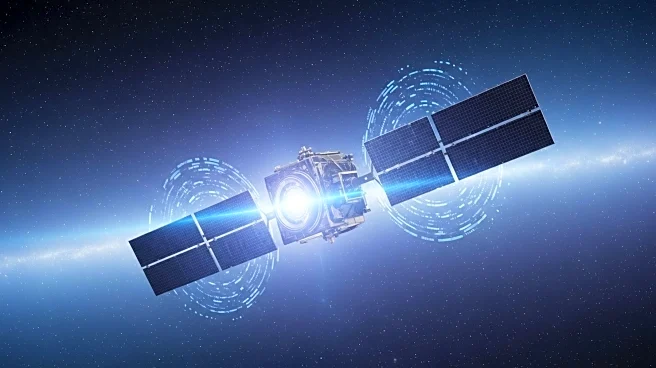What is the story about?
What's Happening?
Security researchers from UC San Diego and the University of Maryland have uncovered that approximately half of all geostationary satellites in Earth's orbit are transmitting unencrypted sensitive data. This data includes consumer, corporate, and military information, making it vulnerable to eavesdropping. The researchers utilized an off-the-shelf satellite receiver, costing $800, to intercept data over a three-year period. They found unencrypted private voice calls, text messages, and internet traffic from in-flight Wi-Fi services. Additionally, communications between critical infrastructure systems, such as energy and water suppliers, and off-shore oil and gas platforms, were exposed. While some organizations, like T-Mobile and AT&T's network in Mexico, have started encrypting their data following the researchers' alerts, many critical infrastructure providers have yet to address the issue.
Why It's Important?
The exposure of unencrypted data on geostationary satellites poses significant risks to privacy and national security. Sensitive information, including military communications and critical infrastructure data, is susceptible to interception, potentially leading to espionage or cyberattacks. The lack of encryption could undermine consumer trust in satellite communications and impact industries reliant on secure data transmission. Organizations that fail to encrypt their data may face reputational damage and legal consequences. The situation highlights the urgent need for improved cybersecurity measures and encryption standards in satellite communications to protect sensitive information from unauthorized access.
What's Next?
The discovery of unencrypted satellite data is likely to prompt increased scrutiny and regulatory pressure on satellite operators and service providers to implement robust encryption protocols. Governments and cybersecurity agencies may issue guidelines or mandates to ensure the protection of sensitive data transmitted via satellites. Companies involved in satellite communications may need to invest in upgrading their infrastructure to comply with new security standards. Additionally, the research findings could lead to further investigations into the security practices of satellite operators and the development of new technologies to enhance data protection in space.
Beyond the Headlines
The exposure of unencrypted satellite data raises ethical concerns about the responsibility of satellite operators to safeguard user privacy and national security. The situation underscores the importance of transparency and accountability in the satellite industry, as well as the need for international cooperation to establish global encryption standards. Long-term, the incident may drive innovation in satellite technology, leading to the development of more secure communication systems and protocols. It also highlights the growing intersection of cybersecurity and space technology, emphasizing the need for interdisciplinary approaches to address emerging threats.















